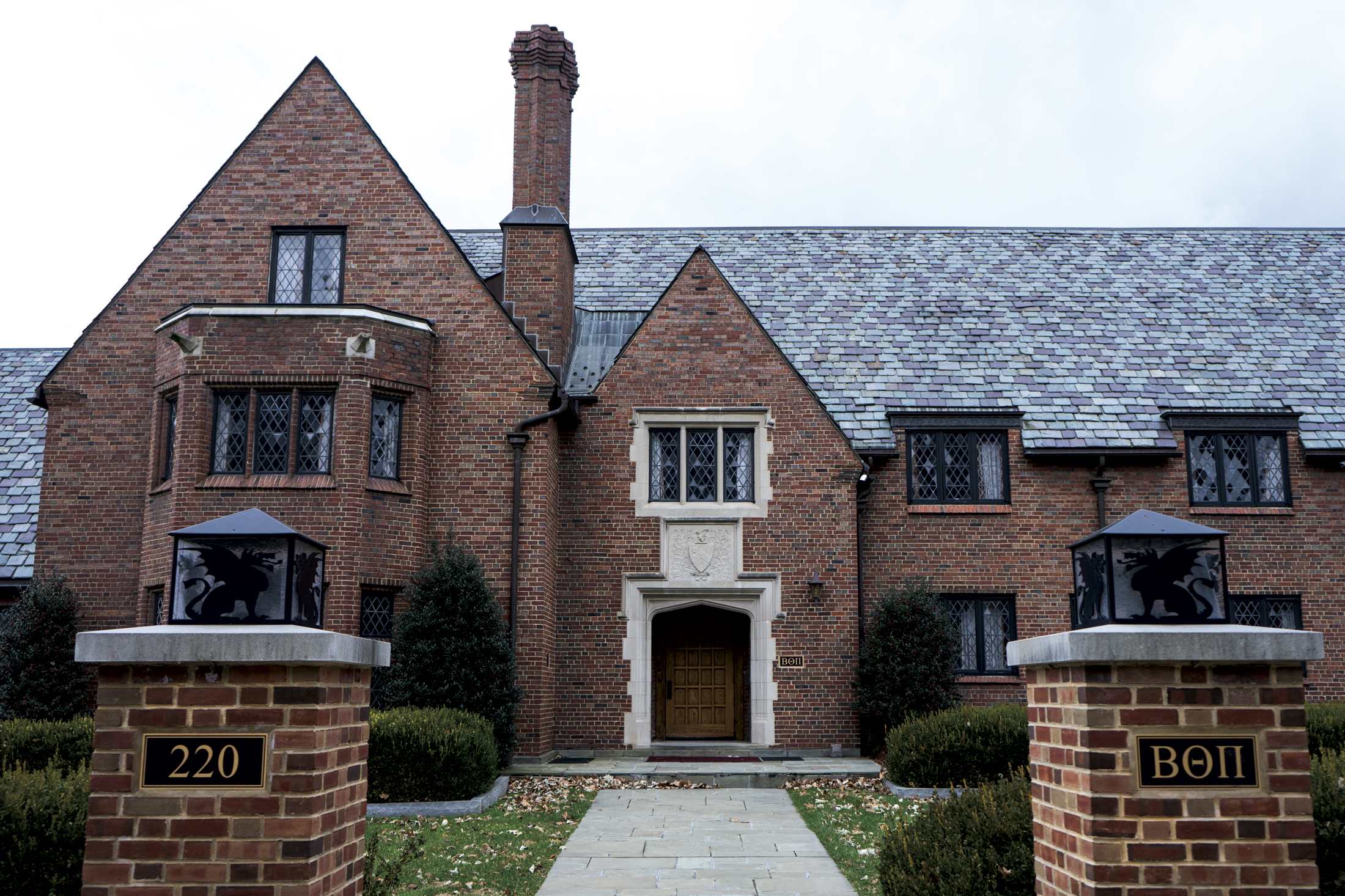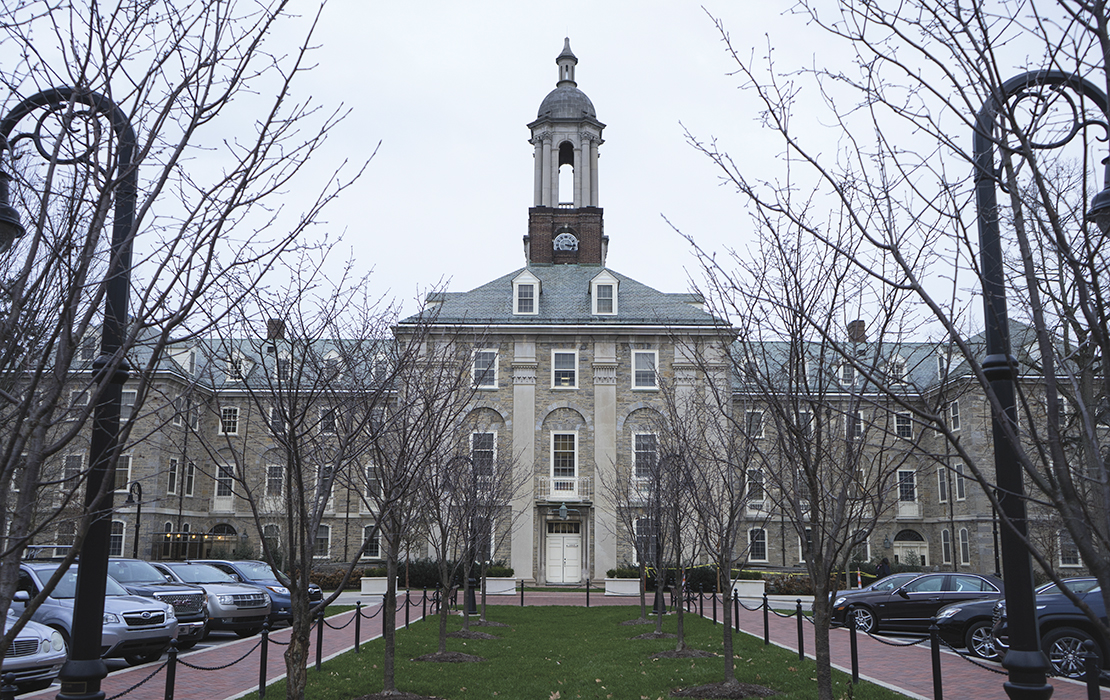

The controversy surrounding Penn State University sophomore Timothy Piazza’s death, put under the microscopic lens of the national media, became a catalyst for institutional change in Greek life at Penn State and across the nation. From the administration assuming control of Greek house misconduct procedure to suspending houses in violation of security requirements, Penn State radically changed the way it dealt with Greek life.
But the death of Clayton Real, a University of Nebraska-Lincoln freshman, on Sept. 5, 2014, affected little change. Though Real’s fraternity was suspended, no wide-sweeping changes occured in UNL Greek life until the advent of the Greek Vitality initiative in 2017.
The evening started as a standard fall “frosh,” or freshman-oriented party, full of music and drinking. But when the next day rolled around, the consequences of the night’s unchecked revelry became apparent.
Real, a recent initiate of the UNL FarmHouse fraternity chapter, was found dead in his room — the result of acute alcohol poisoning.
Thursday night’s party, hosted by the FarmHouse fraternity, took place in Lincoln’s Near South neighborhood and attracted some 80 people, according to reports from the UNL Police Department. Among the alcohol procured for the party was a keg, seven handles of vodka and four handles of whiskey.
During the party, Real, then 18, reportedly consumed enough alcohol between drinks of beer, vodka and whiskey to accrue a .378 blood alcohol concentration, more than 4.5 times the legal driving limit. At some point in the night, he collapsed and passed out, according to witnesses.
Around 12:30 a.m., fellow FarmHouse members took an unconscious Real back to their fraternity house at 3601 Apple St., and brought him to his room. Little did they know the alcohol, combined with his Type 1 diabetes, was poisoning Real.
“The FarmHouse members didn’t wake him up at all,” then-UNLPD Sgt. Jeff Hohlen said in a 2014 Daily Nebraskan article. “They checked on him when they brought him back to the house, and then didn’t see him again till they tried to wake him up the next morning and found he wasn’t responding.”
Unable to awaken Real at 7:30 a.m., FarmHouse members called 911, but it was too late. The emergency responders declared Real dead on the scene.
Former Chancellor Harvey Perlman and Linda Schwartzkopf, the current director of Greek Affairs, declined to comment.
Few systemic changes accompanied Real’s tragic death. Thousands gathered to mourn his passing, and four of Real’s fraternity brothers were convicted of buying alcohol that contributed to the death of Real, a minor.
Those four subsequently received probation and were sentenced with community service which centered around educating others on the dangers of high-risk behavior.
FarmHouse was also individually punished by UNL.
“We have taken appropriate action, given the seriousness of the matter,” then-Vice Chancellor for Student Affairs Juan Franco said in a 2014 Daily Nebraskan article. “We have suspended this chapter.”
But no other chapters felt the winds of change blowing. Until the Greek Vitality initiative, which was introduced in April 2017, no wide-sweeping reforms promised to curb Greek life’s potentially problematic tendencies had been introduced.

The evening started as the Penn State chapter of fraternity Beta Theta Pi’s standard bid night, when 14 individuals commenced their pledge process to gain acceptance.
But the happy night of hazing and excessive drinking became a life or death scenario for Piazza, when he fell to the bottom of the fraternity house’s basement steps. He received several internal injuries, including a ruptured spleen, Class IV hemorrhagic shock and a swollen brain.
According to the First Centre County Investing Grand Jury report, pledges at the fraternity were forced to undergo “the gauntlet.” As defined by the report, a gauntlet is a hazing ritual in which participants are required “to run throughout the fraternity house, stopping at various intervals to speed drink copious amounts of alcoholic beverages…”
After running the gauntlet, Piazza, in a state of intoxication, fell down the house’s basement steps and was knocked unconscious. Sometime soon after, Beta Theta Pi members carried him to a couch, where surveillance cameras captured the formation of a large bruise on his left abdomen.
Piazza’s death was wholly avoidable and was the the result of a toxic culture of hazing, according to the report.
Though one fraternity brother tried to convince others that Piazza needed medical attention, he was ignored and the party went on.
In the morning, Piazza attempted to get up and walk, but he was unable to maintain his balance and fell, incurring brain trauma. He staggered and fell down the basement stairs once again, where he lay for several hours, according to the prosecution’s investigation.
After the brothers found him again, cold and breathing loudly, and after 40 minutes of debate, they took him to Mount Nittany Medical Center, from where he was quickly transported to the Penn State Milton S. Hershey Medical Center due to the severity of the injuries.
But even with intensive surgery, Piazza was quickly dying, and the next day, on Feb. 4, he was pronounced dead.
“Tragically, Timothy would never knowingly set foot outside the fraternity’s doors ever again,” the Grand Jury report said. “When he next emerged, he lay unresponsive on a paramedic’s stretcher fighting a losing battle to live.”
Following the death of Piazza, Penn State’s resolve for reform swiftly emerged. With Penn State President Eric Barron leading the charge, the university’s Greek life underwent a series of changes.
“In the immediate aftermath, it became clear wholesale changes were needed to create a sustainable Greek system,” Barron said in an email to the Penn State community on Feb. 1, 2018, just under a year after Piazza’s death. “We resolved to turn the pain and anguish radiating through our community into decisive reform.”
To Barron and the Penn State administration, the road ahead was clear. Greek life, with its culture of hazing and extreme alcohol consumption, didn’t need a pat on the back. It needed the clenching of an iron fist.
That iron fist clamped down on Greek chapters with reforms that took power away from individual Greek chapters and empowered Penn State’s administration, the opposite approach of UNL’s Greek Vitality initiative.
“Over the past year, [Penn State] instituted extensive new measures, which depart significantly from the Greek system’s self-governance model,” Barron said.
The goal of these measures was to root out and destroy the malign tendencies Penn State’s administration saw in many Greek chapters. To Penn State Vice President of Student Affairs Damon Sims, Greek chapters throughout the nation are out of control.
“The tragic death resulting from a hazing incident a year ago is only the most egregious example of the problematic misbehavior and bad outcomes we've seen too often within our fraternities and sororities,” he said in an email. “The misuse of alcohol and underage drinking, hazing, sexual assault and overly large disruptive gatherings have become hallmarks within the Greek community on too many American campuses.”
To Sims, there must be a reckoning across the culture of Greek life that prompts chapters to practice what they preach.
“We hope for nothing more or less than a national realization that business as usual in these organizations has become too perilous and must change,” he said. “The gap between the stated values and purposes of these groups and their reality has grown and presents an existential question for them.”
- Penn State President Eric Barron
According to Barron’s email to the Penn State community, these were the administrative changes made to Greek life on campus:
The university assumed control of the fraternity and sorority organizational misconduct and adjudication process and established a team of monitors who perform regular spot checks. These compliance checks have surfaced violations of Penn State’s new safety rules and resulted in several chapters receiving sanctions.
On Dec. 19, the university held a signing ceremony with 70 Greek organization leaders representing 49 chapters and the four governing councils (Interfraternity Council, Panhellenic and Multicultural Greek Council and the NPHC), acknowledging the expectations that the university has for its Greek organizations and members.
Penn State instituted its new deferred recruitment policy. Now, new students may not rush a sorority or fraternity until they have completed a full semester. Many sorority students reported that waiting to rush this past semester was helpful, because they adjusted to academic and social life on campus, and are now better prepared to consider participation in Greek life.
To help students and their families make more informed decisions about Greek life at Penn State, the university instituted a scorecard that reviews the performance of each chapter.
University-hired chapter monitors are working with representatives of each fraternity chapter with respect to their chapter’s specific risk-management programs. Risk-management programs must be in place and approved by the Penn State administration and must include details on how the university’s restrictions on the size of gatherings, its ban on hard liquor, and various other required safety protocols will be implemented. The university must approve each plan before any socials involving alcohol are permitted.
Penn State’s campus police participate in joint nightly patrols with State College Police as part of the Neighborhood Enforcement Alcohol Team at University Park. These patrols detect safety violations and help hold students and chapters accountable for unsafe behavior.
Penn State’s zero tolerance rule for serious hazing is in place, and will result in the permanent revocation of recognition of any chapter found to have violated the university’s requirements.
Thus far, the reforms have brought about many positive changes in Penn State’s Greek life, according to Sims.
“[Greek houses now] know that there will be consequences for failing to honor our expectations, including the revocation of University recognition for those organizations that fail to do so,” he said.
But he also acknowledged there is still work ahead.
As Barron noted, the changes haven’t been a fix-all for Greek life at the university. Besides the permanent ban to the Beta Theta Pi fraternity, 13 other Greek organizations have since received multi-year suspensions for infractions since Piazza’s death.
“While these consequences demonstrate that we mean business, the large number of suspended chapters also shows that many students have ignored the call for behavior change and fallen short of our values and expectations,” Barron said.
That is why Barron called for all parents, students, alumni, faculty and staff invested in the Penn State community to go further. He said he wants to see a cultural change, where individuals in Greek chapters focus more on personal responsibility and safety.
In light of a year of upheaval for Greek life across the country, Barron said he looks forward to cooperation between universities in determining Greek life’s destiny.
“We must set a national example for reform,” he said. “To that end, on April 23 and 24, I look forward to gathering university presidents, provosts and student affairs leaders from across the country to begin to explore ideas for cooperative action.”
According to UNL Executive Vice Chancellor and Chief Academic Officer Donde Plowman, the UNL administration also looks forward to cooperating with other universities. Plowman said she hopes the new Greek Vitality initiative will set an example for other universities and make “UNL the best place in the country to be Greek.”
